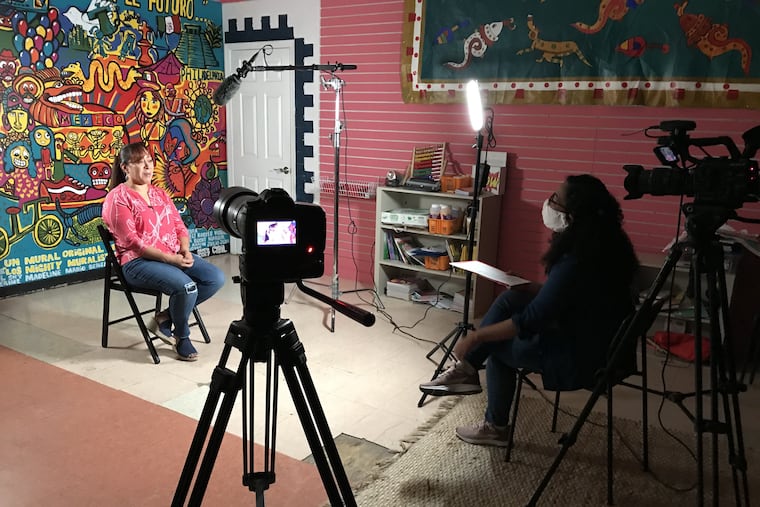10th annual Philadelphia Latino Film Festival tells the city’s stories — and the world’s
The festival will feature filmmakers from Philly and the Americas with stories of resilience, empowerment, and accomplishment during the pandemic. It runs May 30 to June 6.

The Philadelphia Latino Film Festival has shaped filmmaker Kristal Sotomayor’s journey in the industry.
In 2016, Sotomayor volunteered for the festival during her junior year at Bryn Mawr College. This year, she is presenting a rough cut of her own short documentary, Expanding Sanctuary, and is working for her second year as programming director for the festival, running May 30 to June 6.
“The festival has supported me in so many ways: connecting me with other filmmakers, giving me the opportunity to learn the craft, and writing about the issues that are important to me,” Sotomayor said.
She and her mentor, festival director Marángeli Mejía-Rabell, have been working from home during the pandemic and running the festival virtually, along with the rest of the PHLAFF team, to curate this year’s program of 150 short and feature films by Latino filmmakers representing 25 countries. The lineup includes 27 world premieres and 59 Philadelphia premieres.
“We think these conversations brought forth in these films are important and bring so much to the table — especially because they are told by people in our own communities,” Mejía-Rabell said.
For this year’s edition, the festival’s 10th, programming has been expanded from four days to eight, with most of the films divided into three rounds that give attendees on-demand access to all the films in a given round.
The rounds are May 30-June 1, June 1-3, and June 4-6. Tickets prices range from $10 for one feature film to a $250 Festival Pass. There are several free programs and screenings.
Sotomayor’s documentary and two other films with roots in Philadelphia are among the most anticipated screenings. The full schedule and other details can be found on the festival website at phlaff.org.
This short documentary directed by Gabriela Watson-Burkett — an award-winning Philadelphia-based filmmaker, producer, and multimedia journalist — follows Alma Romero’s routine as a health promoter for Puentes de Salud, a nonprofit offering medical care to the Latino and immigrant communities in Philadelphia. Produced with ¡Presente! Media and commissioned by the Lenfest Institute of Journalism, the film takes the audience to South Philly’s Puebladelphia, an area that is home to many Mexican immigrants from Puebla, to watch Romero, a longtime community activist and popular restaurateur, in her service to her community.
The documentary has screened at many festivals, but this is the first time Watson-Burkett is presenting a work at PHLAFF.
Available May 30-June 1.
Sotomayor’s film follows Linda Hernandez in her emergence as a community leader during the campaign to end a decade-old agreement that had allowed Immigration and Customs Enforcement (ICE) officers access to a Philadelphia Police Department database called the Preliminary Arraignment Reporting System (PARS). During the process of trying to bring her mom to Philadelphia from Mexico for her wedding, she finds a new purpose to benefit her immigrant community.
After four years working on the documentary, Sotomayor said she is excited to share it with the community and have people engage with her story and weigh in on the production. She hopes to release Expanding Sanctuary sometime next year.
Available for 24 hours only, on Saturday, June 5.
In 1997, Colombian filmmaker Oscar Molina started studying a phenomenon in which Colombians emigrated to the U.S. to earn money to build their dream houses in Colombia, which they rarely had the opportunity to enjoy and live in.
He began documenting the situation in 2013 as postgraduate student in film and digital media at Temple University, and later developed his work into this documentary.
In Philadelphia, he met María Dionisia Navarro, who was building her dream home in Colombia and hoped to return to retire the following year. “When I learned about her intent to return to the homeland and go live at her house, I thought the best way to stick a spoon into the whole matter was with a film about Mama Icha,” Molina said.
La Casa de Mama Icha is part of a documentary trilogy directed by Molina called “Mi Casa, My Home” that reflects on the meaning of “home” in the context of migration.
Available May 30-June 1.